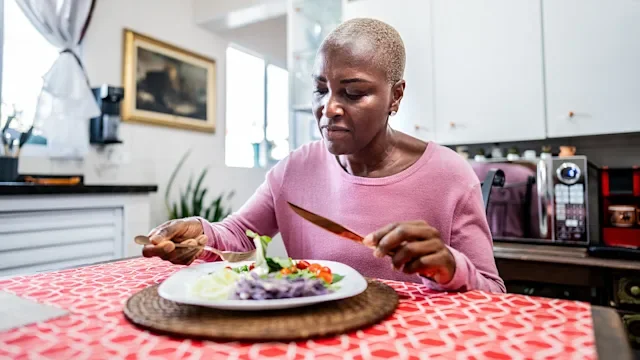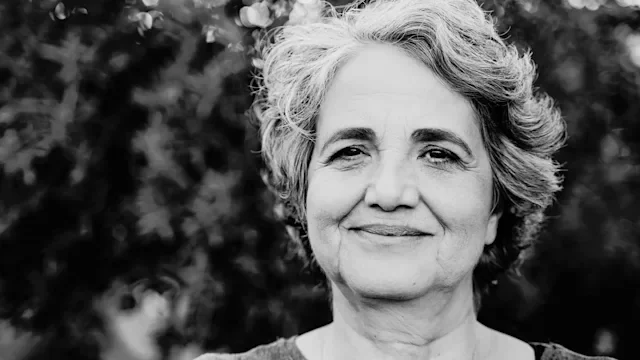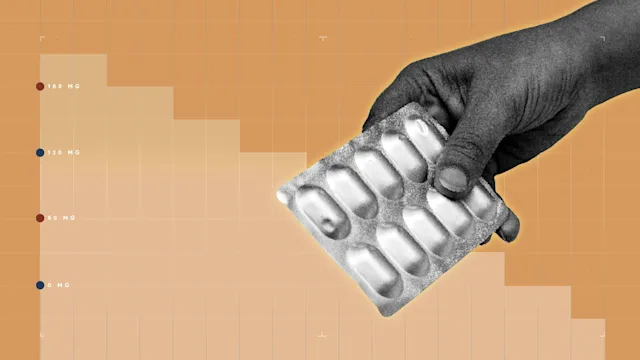Key takeaways:
Hot flashes are the most common symptom of menopause.
A hot flash can cause a sudden feeling of warmth and can make you sweat.
Those who have experienced hot flashes describe it as a flush of heat that radiates through the body.
Carol Gee had a hot flash recently that left her back and bra damp. She’s 72 and hasn’t menstruated in more than a decade.
“I thought I was finished, but, every now and then, I get this hot flash all over my body,” says Gee, an author who lives outside of Atlanta. “Most of the other [menopause] symptoms went away.”
More than 80% of women experience hot flashes during menopause. Some describe them as rushes of heat, sweating, flushing, anxiety, or chills that can last between 1 to 5 minutes.
Hot flashes can start a few years before a woman’s final period. And they can continue for several years after it, according to a 2014 study.
According to the National Institute on Aging, certain lifestyle changes can make hot flashes more bearable. For some, that means dressing in layers or carrying a portable fan. For others, it means avoiding alcohol, spicy foods, and caffeine. Others find relief by exploring mind-body practices. Ultimately, though, some people end up turning to nonhormonal or hormonal medications to address their symptoms.
The first signs of going through ‘the change’
Carol first heard of “the change” when she heard women talking about it in a beauty parlor.
“I remember sitting there and they’d be saying, ‘She is going through ‘the change,’ and she is not herself! She is giving her husband H-E-L-L,’” Carol says. “I told myself, ‘I’m not going through the change. I don’t want this.’”
Carol was about 55 when she noticed the first signs of menopause. Heat seemed to start near her breast bone, then build and move up through her head. “My face would break out in perspiration, and I’d have sweat running down my face. I could imagine the steam coming out [of me],” she says.

- Vivelle-DotDotti and Estradiol
- ClimaraEstradiol
- DivigelEstradiol
Sometimes, Carol would get so hot she had to remove her clothing. Her husband was excited the first time that happened since they were preparing for bed, she says. But the next time she was hit by a pre-sleep flush of heat, he had a different reaction. “He said, ‘This is not going to be in my favor. I’m going to roll over and get to sleep,’” Carol recalls.
She also remembers one time when she was at lunch with a friend and noticed the woman’s face becoming red and damp with sweat. She watched her friend take off her jacket so that she was just in short sleeves. A few minutes later, Carol started having a hot flash and she, too, removed her jacket.
“After about 5 minutes, we didn’t say a word and put our jackets back on like nothing happened,” she says
Carol says over-the-counter estrogen supplements helped lessen her menopausal symptoms, although she still gets the occasional hot flash. “It’s like having a breakout,” she says.
It feels like you could ‘burst into flame’
Lynette Sheppard still has hot flashes at 67, but they aren’t as intense as they once were.
“They’re minor — miniscule. They’re not bad, but they do come out of nowhere,” says Lynette, who lives in Hoolehua, Hawaii. “I just wait it out, or take a cold cloth and run it over my face. But, back in the day, it was like being burned at the stake. I didn’t know a human could get so hot.”
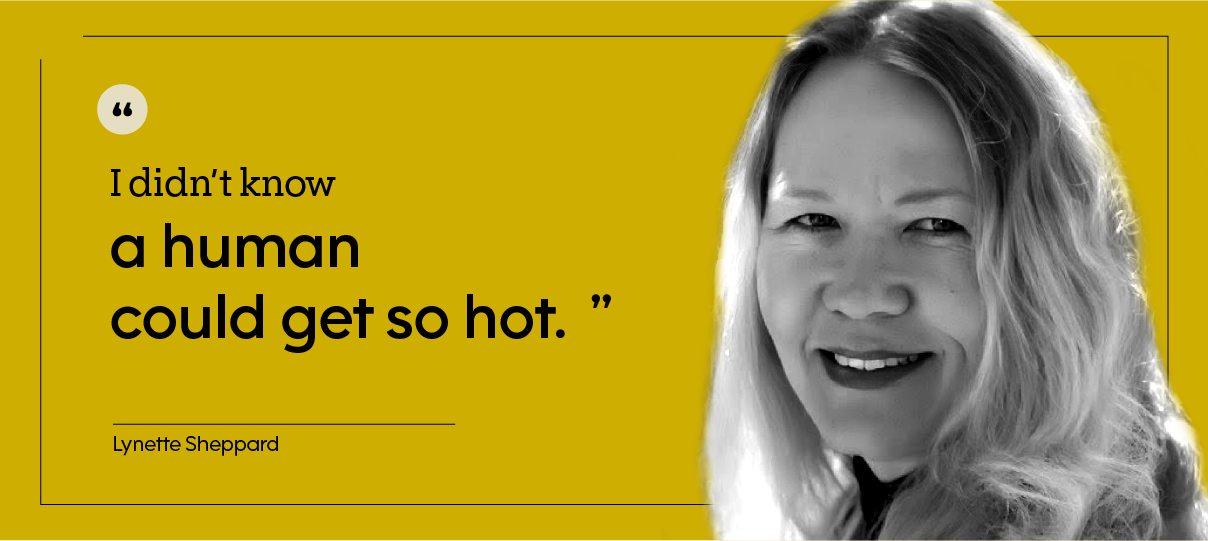
Those early hot flashes felt like she was "heating up from the inside," Lynette says. “It was so intense. Sometimes, I honestly thought I would burst into flame. There’s that thing called spontaneous human combustion. I thought, ‘This is how it happens.’”
She began perimenopause at 49 and was postmenopausal at 51. But the hot flashes didn’t go away with her period. When a hot flash hit during a visit to the Grand Canyon, “I flung myself into the icy cold Colorado River,” she says. “It felt like steam was coming off my body. It was bliss.”
Lynette writes about her experiences and offers menopause survival tips on her blog.
She wants to educate people of all ages, so that they’re not caught off guard like an airport shuttle-bus driver she once encountered.
“It was 30 degrees on the bus. Everyone was shivering,” Lynette says. “I said [to the driver], ‘I get it. You’re hot.’ She said, ‘Honey, I had no idea it was going to be like this.’”
Like heat creeping up your back
Margie Allman, who’s 58 and lives in Alpharetta, Georgia, thinks she had her first hot flash in her 30s. She remembers a warm feeling climbing up her back. “I thought, ‘I wonder if this is what a hot flash feels like,’” she says.
She eventually found out that the answer was yes. When she entered full perimenopause, her hot flashes “were creepers.”
“It would start creeping up my back. There’s so much heat,” Margie says. “My sister warned me. (She used to stick her head in the freezer.) But you can’t imagine it.”
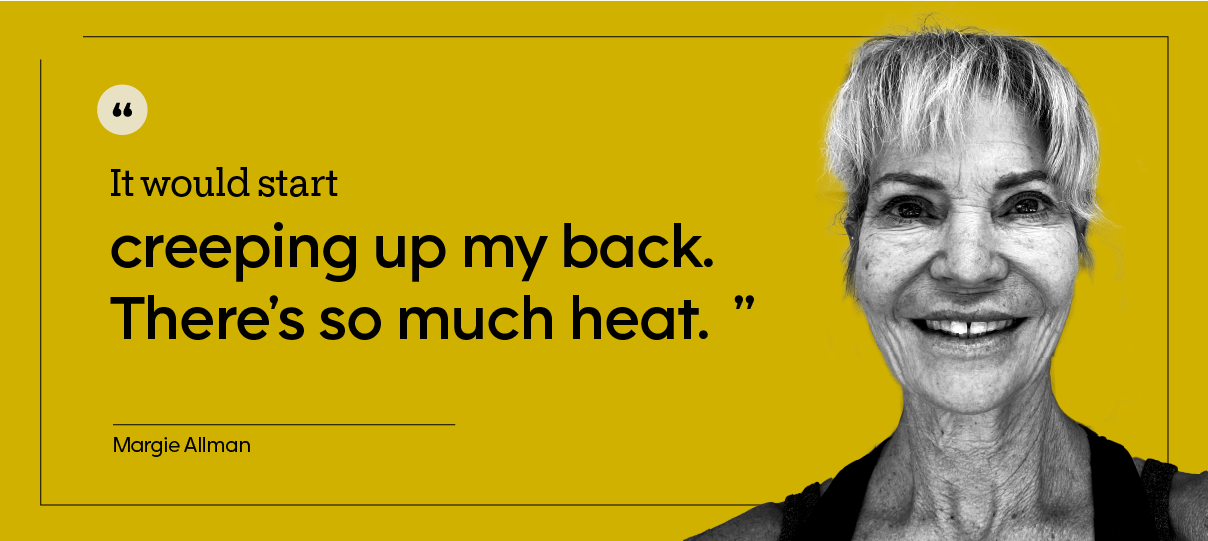
One of Margie’s standard ensembles during this time was a tank top under a button-down shirt, which allowed her to remove the outer layer as needed. She was having dinner with friends when one noticed she’d taken her outer shirt off and put it back on three times.
“Then, when the heat goes away, you’re just sweaty and your clothes are wet. So that’s really fun,” she says.
Margie didn’t enter postmenopause until she was 56. “So you’re having hot flashes with that heavy period,” she says, adding that, while she still has the occasional hot flash, they’re much less intense. “I also get low blood sugar. So when it starts I’m, like, ‘Is this low blood sugar or is this a hot flash?’”
Margie is a Pilates instructor. Through work, she made contact with other women who were going through the same process. She also found a way to deal with her hot flashes.
“I think exercise helped me push through the physical discomfort,” she says. “And working out while getting a hot flash is much different because you’re already wet.”
What does the doctor say?

Patricia Pinto-Garcia, MD, MPH
Medical Editor
Menopause changes just about everything about your body, including your brain.
When you go through menopause, the level of estrogen in your body drops. Researchers aren’t sure exactly why, but this drop changes how your brain reacts to your body temperature. Most of the time, your core temperature needs to rise by a few degrees before your brain triggers your body’s cooling mechanisms.
During menopause, your brain triggers these mechanisms if your body temperature goes up by less than 1 degree Farenheit. Since body temperatures normally fluctuates by that much throughout the day, people going through menopause can experience multiple hot flashes on a daily basis.
You start off feeling that sense of warmth because the blood vessels near your skin dilate, so that you can give off extra heat. Then, you start feeling the effects of your body’s other cooling mechanisms, like sweating, chills, and flushing. You might recognize these sensations from the last time you had a fever and your body was trying to cool down.
Hot flashes can last for several years and continue even after you finish menopause. Studies show few people seek help for hot flashes, even though there are medications that can relieve the symptoms. If hot flashes are disrupting your life, you don’t have to wait them out. Talk to your healthcare provider about treatment options.

Why trust our experts?







